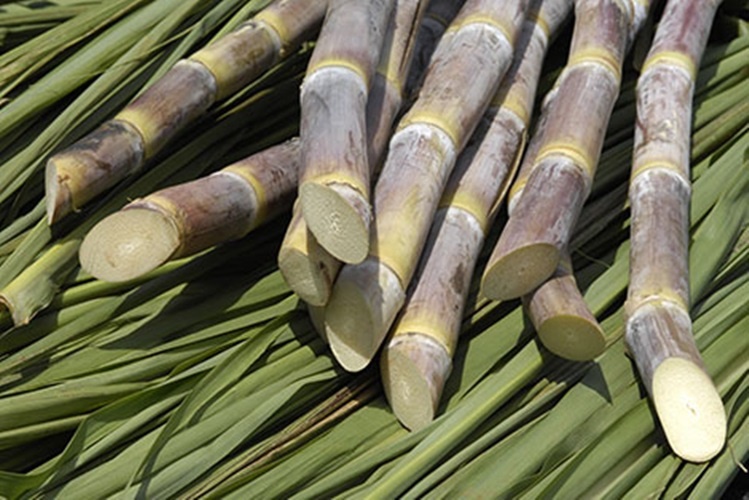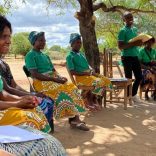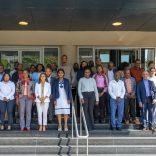AICS to disburse $3.8 million for agricultural project covering Mozambique and Zimbabwe
Mozambique: Yet another foreign plantation failure – By Joseph Hanlon

The Procana sugar project in Massingir, Gaza province, has failed for a second time. (Zitamar, 2 Feb) TSB, the third largest sugar company in South Africa, owned by RCL foods, was given 37,000 hectares near the Massingir dam in 2012 for a new plantation to produce 500,000 tonnes of sugar per year – more than all the other Mozambican sugar estates combined – and 240 million litres of ethanol (as a biofuel that can be mixed with petrol).
The Massingir Agro-Industrial Project (MAI) was scheduled to begin production last year. TSB holds 51% of the company and the remaining 49% is held by SIAL (Sociedade de Investimentos Agro-Industriais do Limpopo), a Mozambican company chaired by former Minister of Industry, Octavio Muthemba. The original cost estimate was $740 mn, which TSB said it would pay. But Zitimar says that a detailed feasibility study showed the investment cost to be $1.2 billion, which John Du Plessis, sugar head at RCL, said “was considered very high … and made it quite difficult to get a reasonable return on the project” – especially with falling global sugar and petrol prices. The Mozambican company SIAL proved unable to raise the additional investment needed, and Du Plessis said the project was effectively ended last year.
The original project was called Procana and was promoted by the Zambian-born cricketer Phil Edmonds and his Zimbabwean partner Andrew Groves, who are both said to have good links to Robert Mugabe. They obtained 30,000 ha and proposed to produce 600 million litres of ethanol per year. This assumed they would produce three times as much ethanol from sugar as anyone had ever done in Mozambique, which always made the proposal dubious. It collapsed in 2008
They then set up the Maputo Private Hospital in 2010; Edmonds resigned as chair in 2012. Next was Agriterra and Mozbife, a major beef ranching and marketing project in Manica and Tete provinces. Last year it was announced that the ranches would close, and on 20 January inspectors confiscated a tonne of rotten beef from the Mozbife butcher shop in Chimoio. (The story has been covered extensively in this newsletter, including: 206, 17 Oct 2012; 289, 5 June 2015; 320, 14 May 2016; 329, 26 June 2016; 356, 29 Jan 2017)
Edmonds and Groves were the subject of an investigation by Global Witness last year which said “Edmonds and Groves carried off a multi-million-dollar heist on their own shareholders, funnelling profits into offshore trusts.” https://www.globalwitness.org/thedeceivers/ Edmonds and Groves denied any wrongdoing. But Edmonds resigned as chair of Agriterra on 22 April 2016, shortly after the report was published; Groves remains CEO. http://www.agriterra-ltd.com/News.aspx?ArticleId=24305905 Agriterra’s London share price fell from £180 per share in April 2006 to £0.15 now.
Octavio Muthemba, as well as being a minister in the 1990s, was also chair of SPI – Gestão e Investimentos, the Frelimo party holding company. In 1997, the then People’s Development Bank (BPD) was privatised to the Southern Bank Berhad (SBB) of Malaysia (30%) and Invester (30%), a Mozambican company headed by Muthemba. (The state kept 40%.) Muthemba became chair of Banco Austral. Bad loans to the Frelimo elite drained the bank of at least $150 million and the bank was handed back to the state in 2001. Antonio Siba-Siba Macuacua, the Bank of Mozambique’s head of banking supervision, was named head and tried to collect on some of the loans and prepare the bank for reprivatisation to ABSA of South Africa (later Barclays). In an unsuccessful attempt to stop the sale, Siba-Siba was murdered at the bank’s offices on 11 August 2001. In 2009 and 2010, the Public Prosecutor’s Office (PGR) finally announced that no Mozambicans would be prosecuted for plundering and bankrupting Banco Austral or for the 2001 assassination. The Public Prosecutor’s Office (PGR) said it would not prosecute Muthemba, who was chair, or three members of the board of directors or supervisory board, even through the four received large loans for themselves and their companies, knowing this was in violation of both the law (Lei 28/91) and the bank’s Credit Policy Manual.
The Banco Austral story was published in Metical in September 2001. An English version of those articles is on http://www.mol.co.mz/noticias/metical/2001/en010917.html
By Joseph Hanlon













Leave a Reply
Be the First to Comment!
You must be logged in to post a comment.
You must be logged in to post a comment.